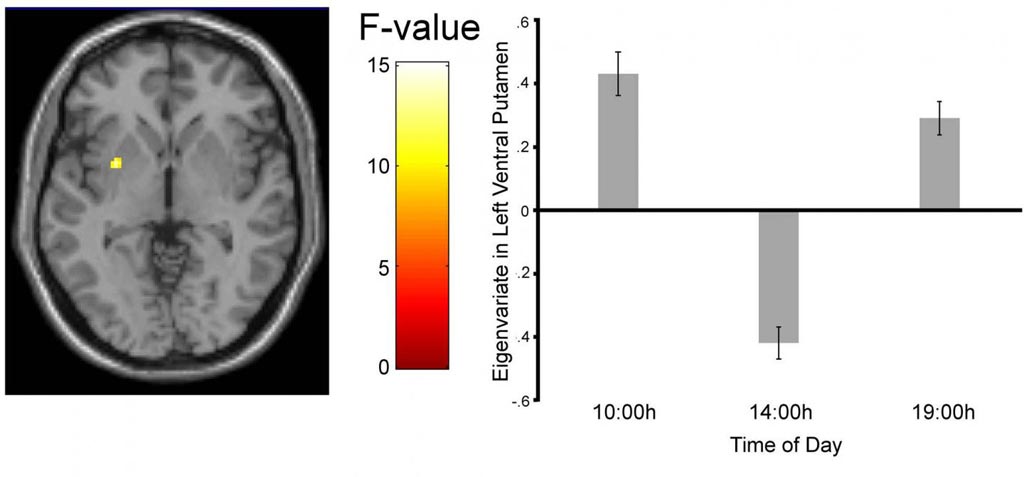Research Evidences Dip in Brain Reward Response
By MedImaging International staff writers
Posted on 05 Sep 2017
Researchers investigating the brain’s reward response mechanism have shown how activation of the reward-processing region of the brain dips at 14:00, but peaks and in the morning and in the evening.Posted on 05 Sep 2017
According to the researchers, the new findings could help clinicians treat disorders that are influenced by the time of day such as sleep disturbances, depression, and substance abuse.

Image: The fMRI image shows that the activation of the reward-processing brain region peaks both in the morning and in the evening, but dips at 2 in the afternoon (Photo courtesy of Byrne et al., The Journal of Neuroscience 2017).
The results of the study were published by the Society for Neuroscience (SfN; Washington, DC, USA) in the August 21, 2017, issue of the Journal for Neuroscience. The study group included 16 healthy young men, and is one of the first to study the diurnal reward activation rhythm using a repeated measures imaging procedure.
For their study, the researchers compared activation of the reward system of the men’s brains using a Region of Interest (ROI), Blood Oxygen Level Dependent (BOLD), functional Magnetic Resonance Imaging (fMRI) protocol, while the men were performing a gambling task at 10 am in the morning, at 2 pm in the afternoon and at 7 pm in the evening.
The results showed that activation in the left putamen region of the brain was least in the early afternoon, and that the greater activation in the morning and evening could be a result of the brain not expecting rewards at those times.
The researchers suggest that further research is needed into the circadian modulation of reward, and stress the importance of reporting the time of day for fMRI neuroimaging protocols.
Related Links:
Society for Neuroscience














